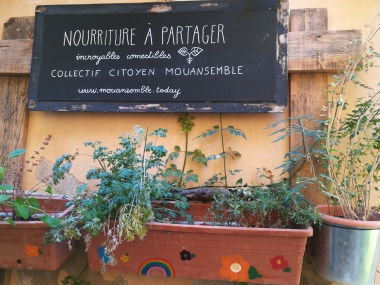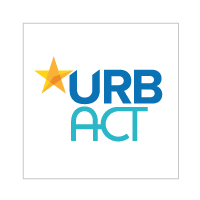Takeaways from URBACT last Monitoring Committee
Edited on
21 December 2017The last Monitoring Committee meeting of URBACT took place on 16 and 17 November in Mouans-Sartoux, a 10 000-inhabitant town on the French Riviera, which is a partner in the AGRI-URBAN network working on agri-food production in small and medium-sized cities, and was labelled earlier this year an URBACT Good Practice for its 100% organic and 70% local school canteens. The Monitoring Committee members were given the opportunity to visit the municipal farm, family gardens as well as a social grocery shop.

During the Monitoring Committee meeting, URBACT three main strands of activities were dealt with:
- Transnational exchanges: Action planning networks are progressing well in the second phase of their project, as some wide-reaching transnational events (organised by sub>urban, BoostINNO) have shown.
Regarding the Call for Transfer Networks which is open until 10 January 2018, about 2/3rd of the 97 Good Practices are expected to apply.
- Capitalisation and dissemination: the main objective of capitalisation activities is to cluster and exploit knowledge coming from URBACT networks in order to make it available to the wider urban community, in particular via the website. To do so, 5 network-led actions, involving 11 networks, and 6 programme-led actions are being developed. Fighting urban deprivation and promoting integrated and participatory urban development are two key topics on which URBACT will keep on working in 2018, in close cooperation with the EU Urban Agenda Partnerships.
- Capacity-building: relying on modularity and multi-user principles, the priority actions in the coming year will be to develop a digital toolkit about the URBACT method and provide support to networks regarding their integrated action plan. A working group will also be set up in order to assess the current situation of Article 7 cities, understand their needs on implementation challenges and recommend future actions to be taken by the Programme.
In terms of communication, the Monitoring Committee’s members were reminded of the ongoing Good Practice campaign which peaked with the City Festival in Tallinn early October. The event’s satisfaction rate was of 4.68/5, with participants considering that their knowledge of urban practices developed by other European cities improved thanks to the Festival and that they had gained a better understanding of URBACT. In the past year, URBACT also developed its partnerships, as the Programme’s involvement in the European Week of Regions and Cities and the European Conference on Public Communication testify. The role of the National URBACT Points (NUP) in the Programme's communication activities was underlined. Indeed, prior to the Monitoring Committee meeting, the network of NUP had met for two days during which they were trained on facilitation techniques (so as to enable more interactive meetings) and discussed actions to undertake in 2018.
Following the publication of the 7th Cohesion report, the Managing Authority proposed to organise a workshop early next year on the future challenges for urban territories and cities in Europe post-2020 and the role of URBACT in this frame. This workshop will take place in March 2018.
The next Monitoring Committee meeting will take place in April 2018 in Sofia (BG).
Read the article published in the local press (IN FRENCH)
Find out more about the programme governance
 Submitted by URBACT on
Submitted by URBACT on
